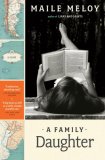Summary | Excerpt | Reading Guide | Reviews | Beyond the book | Read-Alikes | Genres & Themes | Author Bio

A Novel
by Jodi PicoultFrom the book jacket: Trixie Stone is fourteen years old and in love for the first time. She's also
the light of her father's life - a straight-A student; a freshman in high school
who is pretty and popular; a girl who's always looked up to Daniel Stone as a
hero. Until, that is, her world is turned upside down with a single act of
violence...and suddenly everything Trixie has believed about her family - and
herself - seems to be a lie.
For fifteen years, Daniel Stone has been an even-tempered, mild-mannered man:
a stay-at-home dad to Trixie and a husband who has put his own career as a comic
book artist behind that of his wife, Laura, who teaches Dante's Inferno at a
local college. But years ago, he was completely different: growing up as the
only white boy in an Eskimo village, he was teased mercilessly for the color of
his skin. He learned to fight back: stealing, drinking, robbing, and cheating
his way out of the Alaskan bush. To become part of a family, he reinvented
himself, channeling his rage onto the page and burying his past
completely...until now. Could the young boy who once made Trixie's face fill
with light when he came to the door have been the one to end her childhood
forever? She says that he is, and that is all it takes to make Daniel, a man
with a history he has hidden even from his family, venture to hell and back in
order to protect his daughter.
Comment: In her 13th book Picoult does what she does best - creates
a fast-paced tale that explores a hot button issue. In this case teen
sexual activity, and more specifically date rape; she also throws in some
thought provoking explorations on whether it's ever possible to let go of
past mistakes in order to reinvent oneself. In addition, she adds an extra
twist by collaborating with comic book artist Dustin Weaver, who has created a graphic novel
set within her text.
The graphic novel is purported written by Daniel, Trixie's dad who is a
comic-book artist. Daniel's central character is similar to himself - a
formerly violent teenager brought up as the only white boy in an Alaskan Inuit
village. Every chapter contains some pages from Daniel's book which, rather than
distracting from the narrative, make it possible to show a different point of
view in a novel fashion.
Some
reviewers thought this mix worked well, such as The Houston Chronicle reviewer
who wrote, "novels and comic books exhibit many differences. But in Jodi Picoult's
The
Tenth Circle, the reader witnesses a marriage of the two — and it's a
marriage made in heaven. On the other hand, Publishers Weekly felt
that the "drawings, though well-done, distract from the powerful picture she has
drawn with words". Another reviewer felt that the Dante metaphor was overly
labored.
In response to the question, "Have any of the
early reactions to The Tenth Circle surprised you?", Jodi
replies ....
A lot of people have been reevaluating the way
they read a story, which I just love, because that's part of the reason
why I wrote the book. Some people want to absorb the art just where it
is, mid-narrative. Some read the graphic novel first. Some save it for
last. Most people are entranced by the way the art is just art until the
narrative is added to it, almost as if there's a chemical
reaction…resulting in insight into Daniel's character. Oh, and they seem
to be having a good time searching for the hidden message in the art.
Parents who've read the book keep pulling me aside to desperately
ask, "That teen sex stuff; the parties…that's all fiction, right?" I
think that peeling back the surface layer of what teenagers are really
doing intimately with each other is startling for adults to blatantly
see and hear – I anticipated that reaction. What took me by surprise,
however, are the number of young women who've written to me to say that
they were date raped, and never told anyone, because they were sure it
was their fault in some way – they hadn't expressed NO clearly
enough. I think Trixie's experience mirrors theirs, and validates their
feelings – which allows them to open up about something they've hidden
for years. Things like this are humbling -- when you write fiction you
don't expect to make a profound difference in someone's real life.
Read more from this interview.
The bottom-line is that The Tenth Circle will probably not go down as one of Picoult's strongest books, nonetheless it's a page-turning read on a topical subject, and one that many, particularly parents of teens, should find of interest.
![]() This review
first ran in the December 6, 2006
issue of BookBrowse Recommends.
This review
first ran in the December 6, 2006
issue of BookBrowse Recommends.

If you liked The Tenth Circle, try these:

by Maile Meloy
Published 2007
From the award-winning author of Half in Love and Liars and Saints, a riveting story of love, sex, secrets, guilt, and forgiveness.

by Greg Iles
Published 2006
'The job of great fiction is to entertain, elucidate and educate while keeping readers nailed to their chairs; this does all of that brilliantly.'
Your guide toexceptional books
BookBrowse seeks out and recommends the best in contemporary fiction and nonfiction—books that not only engage and entertain but also deepen our understanding of ourselves and the world around us.